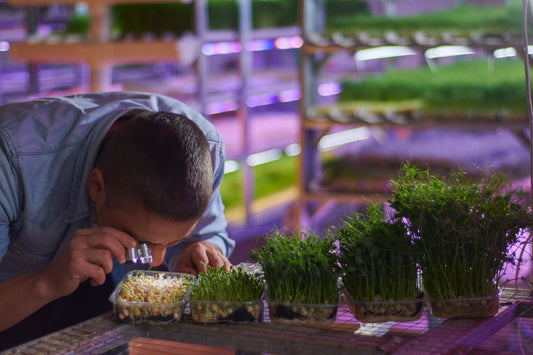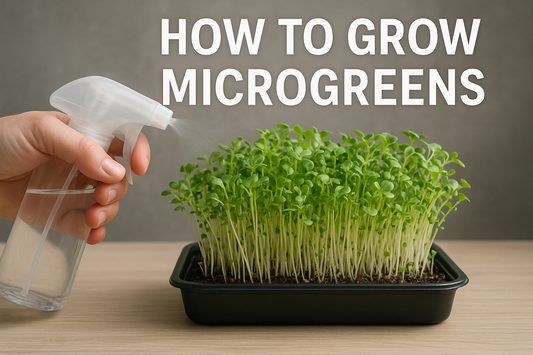
Growing Sprouts in Summer – Helpful Tips for Fresh and Healthy Greens
Share
Summer is the perfect season to grow sprouts at home and enjoy fresh vitamins directly from your kitchen. With warmth, light, and proper care, sprouting seeds develop quickly into crisp and nutrient-rich shoots. However, even during this favorable season, there are important factors to consider to ensure healthy and tasty results. In this article, we share essential tips for sprouting in summer.
Choosing the Right Sprouting Seeds
The choice of sprouting seeds determines flavor, nutrition, and success. For summer sprouting, opt for seeds that germinate quickly and tolerate warmth well:
- Beans: mung beans, green and brown lentils, peas, alfalfa. They germinate in 2–4 days and produce juicy, crunchy sprouts.
- Grains: wheat, rye, naked oats, buckwheat. Rich in minerals and ready to eat within just a few days.
- Cruciferous vegetables: broccoli, radish, red cabbage, arugula. These sprouts are full of flavor and contain valuable phytochemicals such as sulforaphane.
At Green Chief you can find high-quality seeds tested for germination – ideal for those who want to sprout seeds in a jar.
Using the Right Sprouting Equipment
You don’t need expensive tools to grow sprouts. What you really need are:
- Sprouting jars or small seed sprouters with mesh or perforated lids.
- Shallow trays with drainage holes, perfect for grains.
- A rinsing routine: in summer, sprouts should be rinsed regularly, at least 2–3 times per day.
Additional lighting is usually not required, but avoid trying to sprout seeds in the dark, as this weakens growth. Gentle grow lights can be useful if you sprout indoors.
Controlling Temperature and Light
A key factor in sprouting is controlling temperature and light. The optimal temperature for sprouting is between +20 and +25 °C (68–77 °F). Direct sunlight can damage delicate sprouts, so a shaded or semi-shaded location is best.
Indoors, soft-spectrum grow lights provide balanced light, while outdoors morning sunlight is sufficient. Make sure sprouting jars or trays are not exposed to midday heat.
Regular Rinsing and Cleaning
Regular rinsing and cleaning are essential to keep sprouts fresh and safe to eat. Rinse jars and sprouting containers several times a day with clean water to prevent mold. Good hygiene is the foundation of successful sprouting.
Timing the Sprout Harvest
Harvest timing depends on the seed type:
- Mung beans and lentils are ready in 2–3 days.
- Alfalfa takes about 4–5 days.
- Radish and broccoli sprouts are ready in 3–4 days.
Harvest your sprouts while they are still tender and crunchy, before larger leaves appear. At this stage they taste best and have the highest nutritional value. After harvesting, sprouts can be stored in the refrigerator for 1–2 days, but are best enjoyed fresh.
Growing sprouts at home is simple, fun, and provides fresh, living food all year round. In summer, sprouting works even faster. With carefully selected seeds and the right sprouting equipment from Green Chief, your summer sprouting will be a guaranteed success.











